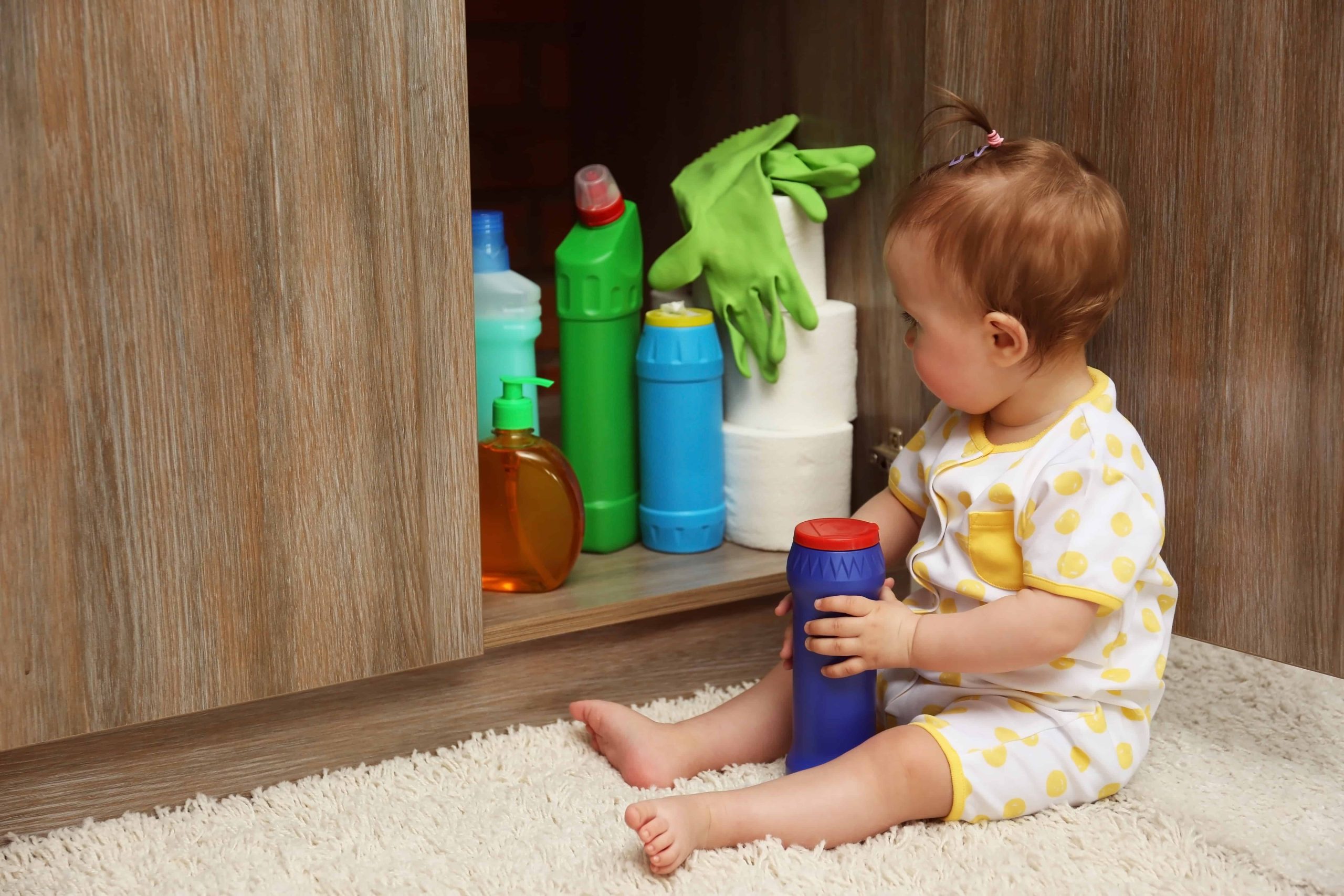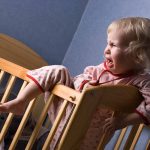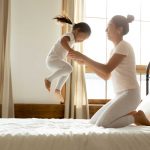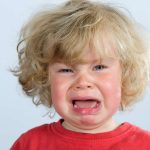
Safe Use, Safe Home: Child Poisoning Prevention by Dr. Chetan Ginigeri
4 min readWritten by Editorial Team


As a parent, you must ensure the safety of your child. Most of us think when our child is in our home premises; he or she is safe. Is that so? Well, one of the major problems that your child encounters when he is “safe” at home is poisoning. Surprised? Well, around three million accidental poisonings are reported every year. Children under five years are accounted for the majority of accidental poisoning incidents. And almost 90% of childhood poisonings take place in the home!!
Poison is something that children can consume, breathe in, contact, or even get in their eyes, which can bring about various serious health issues that can turn even fatal. From fertilizer to medicines, from toiletries to makeup, your home is a big source of poisonous substances. Therefore, it is important to understand where the dangers are and about the safety measures that should be taken at home to ensure that your kids don’t have the threat of poisoning.
Safety In The Home
Curiosity is the nature of children. There are many products in the house which seems bright because of their packaging. A child will get attracted to these products because he or she may not be able to distinguish between a candy and a household product, which could be harmful to him or her. You will be astonished to know that some of the most common causes of poisoning happen due to the items which may seem trivial to you. Most child poisoning cases occur due to having the following things scattered around the home for which children get access to them.
- Painting materials
- Cleaning products
- Cosmetics such as perfumes and nail polishes
- Soaps and deodorants
- Mouthwash
- Alcohol
- Pesticides
Apart from this, you have to take care of medicines at home, especially. A large number of child poisoning occurs due to medicines. The general tendency is to keep the medicines at places that are easily accessible to children. As a responsible parent, you have to keep the medicines far away from the hands of your child. Remember, even a simple over-the-counter medicine could cause lethal damage to your baby.
Kitchen
The kitchen of your house also holds plenty of items which could be highly dangerous for your child’s health. Your child enters your kitchen quite often, sometimes in your lap or sometimes by just crawling through the floor. You cannot prevent your baby from going to the kitchen. However, if you know the items which might harm your baby, then you will be able to protect your baby from poisonous elements in the kitchen. Remember, your kitchen is filled with bright things which can be attractive but harmful to your children. Here are some of the tips that you can utilize to ensure the safety of your child.
- Use locked cabinets to store the items.
- Ensure that the dangerous items are out of reach and sight of your child.
- If you keep medicine in the kitchen, then ensure it is locked inside the cabinet.
- Kitchen cleaners, dishwasher soap, and other harmful products should be placed under the sink locked inside the cabinet with safety latches.
Bathroom
Many people tend to keep medicines in the bathroom. Now, this is a safe way of ensuring your baby stays away from harmful medication. But, you got to remember that your little one can also reach the bathroom. Though the container caps of the medicine indicate “child-resistant,” you have to remember that they are not childproof. So, it will always be better to keep the medicine locked inside the cabinet. Here are some of the tips you can utilize to ensure safety for your child from harmful substances inside the bathroom as well.
- Use cabinets to store the soap and shampoo; don’t leave them in the open.
- Stop taking medicine inside the bathroom in front of your child because he or she may start copying you. Never tell a child that medicine tastes like candy.
- Ensure that substances such as bathroom cleaners and toilet cleaners are far away from the reach of your child.
Medicines:
Children are often able to access the medicines of siblings, parents, or grandparents at home. It is estimated that around 79% of parents and 85% of grandparents require and possess prescribed drugs. Consuming these medicines, especially in large doses, may cause severe ailments to your child. Such unmonitored doses are harmful, even if the medicine in question belongs to the child himself. Check out the label every time you give medicine. This will help you to be sure you are giving the right medicine in the right amount to the right person.
- Always use medicines in a well-lit environment, as it is easier to misread medicine names and measure wrong doses in the darkness.
- Make sure that any pouch, bag, etc. carrying medicines are kept away, safe, and out of your child’s sight.
- Secure medicine bottles and containers with safety caps and make sure that they are not easy for the child to access.
- Kitchen spoons are often inaccurate, and so it is better to use dedicated measuring cups to measure doses for your child.
Laundry
Laundry detergents are highly poisonous for your children, and therefore, you should pay closer attention to them, ensuring they are away from your child’s reach.
- Make sure that the laundry products are in their actual container, closed tightly with the label on.
- The laundry products come in different attractive smells and colors. If kept carelessly, they may try to taste it. Therefore, lock them inside a cabinet.
- Avoiding mixing ammonia with laundry detergent because the fumes released through the mixture could be dangerous for your
- Spray bottles are very harmful to your kids and so pay attention to it.
- Use safety latches for all cabinets in which hazardous substances are placed.
Other Hazards
Here are some of the other hazards through which you have to ensure the safety of your kids:
- Prevent the poisonous carbon monoxide from spreading by inside the house by opening the door of the garage before starting the engine.
- Ensure that your wood, coal, or kerosene stove is burning properly.
- Install devices that will monitor carbon monoxide around your child’s bedroom.
- Keep the button batteries far away from your child.
- Never put rat poison, naphthalene balls openly on the floor.
Conclusion
So, if you are seriously looking to ensure that your child is not facing any threat of poisoning and growing up in a secure environment, then make sure you follow the things mentioned above.

Editorial Team,
With a rich experience in pregnancy and parenting, our team of experts create insightful, well-curated, and easy-to-read content for our to-be-parents and parents at all stages of parenting.Read more.
Responses (0)
Want curated content sharply tailored for your exact stage of parenting?
Sponsored content
Discover great local businesses around you for your kids.
Get regular updates, great recommendations and other right stuff at the right time.











